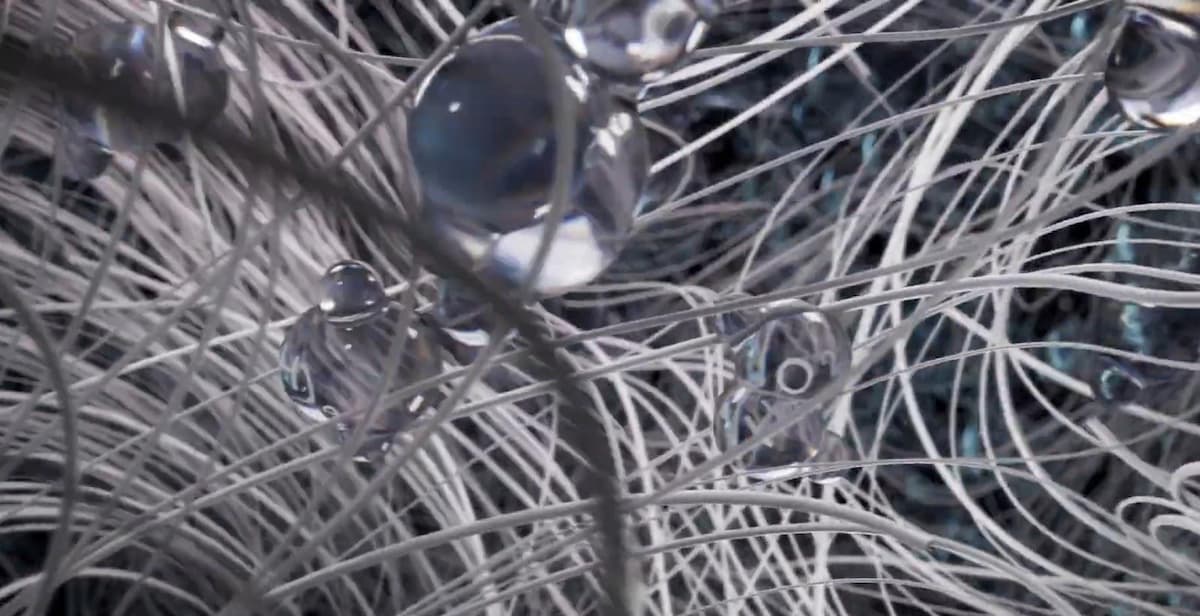Black mold is a type of fungus that can cause an immune response within your body. Typically, people are getting rid of mold. They sneeze and cough or get a blocked nose and itchy eyes. Though you may not die from it, it could increase the chances of asthma attacks. There is no cure for black mold allergy, but a health professional can diagnose the condition and help manage the symptoms.

Best portable cooling devices

What is black mold?
A dark green or black colored type of fungus is referred to as black mold. Although there are many different types of black molds, when most people say “black mold” they are talking about Stachybotrys chartarum. It thrives and moves on things that have lots of cellulose like papers, wood products, or drywall that are made from these materials. Cellulose is a fiber in fruits, vegetables, and other plants. It’s part of the cell wall.
Black mold will only grow if there is warmth and moisture for its development. Normally, it appears in wet areas or places that have been water-damaged at some point like basements, bathrooms, etc. For most people, black mold won’t make you sick very much or kill you that easily.
Can black mold make you sick?
People who are allergic to mold usually fall ill because of exposure to this kind of fungi. The spores produced by them can get into the air sometimes. Molds also emit microbial volatile organic compounds (VOCs), which produce a very unpleasant “moldy” or musty smell. Allergic people can have allergy symptoms either from spores or VOCs. Anyway, if you are allergic to these spores, you are prone to experience allergy symptoms because your immune system is oversensitive to them. Consequently, the release of certain chemicals by your immune system results in inflammation in your lungs, nose, and eyes. Irrespective of whether you possess allergies, mVOCs can still lead to irritation.
If your immune system is weakened (suppressed), for instance by immunodeficiency disorders or drugs that inhibit its functioning, black mold exposure may additionally cause mycosis (a fungal infection) in one’s air passageways or elsewhere on his/her body. People with mold allergies can become victims of all kinds of molds. However, black mold is no more dangerous than other types of mold.
How fast does black mold influence you?
The way black mold affects you depends on whether you have any allergies or sensitivities toward it. Your body is like no other and how it reacts to the presence of black mold could be different from others’ reactions.
Symptoms may show up right away after you come into contact with spores if you are allergic to black mold. You may not experience any symptoms or they may take a long time to appear if you don’t have allergies to black mold.
What will happen to you if you breathe in Black Mold?
If one is allergic to black mold, breathing in its spores results in an allergic reaction. This is a natural response of your body when exposed to an allergen called allergic or Toxic effects.
The first time that your body comes into contact with black mold spores, and if you have an allergy to the substance, it creates immunoglobulin E (IgE). These are antibodies made by the immune system. IgE is different from other types of antibodies that your body makes because they target specific types of allergens such as black mold. They act by attaching themselves to mast cells, which contain histamine – a chemical responsible for an allergic reaction on exposure of the skin and mucous membrane lining the G.I.T and respiratory tract. After initial exposure, your mast cells now become sensitized for future responses towards this type of allergen like black molds.
On subsequent occasions when these mast cells meet with black mold spores they discharge histamine along with many other chemicals. Histamine causes instantaneous allergy symptoms which develop quite quickly; mostly within seconds or minutes. Other substances can cause continuous inflammation.

What are the symptoms of exposure to black mold?
The most common symptoms of black mold exposure include sneezing, coughing, nasal congestion, postnasal drip as well as red eyes. Also, it can be:
- Sneezing.
- Coughing.
- Nasal congestion.
- Postnasal drip.
- Red eyes.
Asthma is sometimes triggered or worsened by exposure to black mold and these include wheezing, shortness of breath (dyspnea), dry cough, and chest tightness.
How is a black mold allergy diagnosed?
Allergists are healthcare providers who specialize in treating allergies. They can administer tests to diagnose your black mold allergies.
Which types of tests will be done for the diagnosis of a black mold allergy?
Depending on your symptoms and suspected allergens that may lead to your black mold allergy, different allergy tests can be used by a healthcare provider. The following tests may be used:
Skin prick (scratch) test
This test exposes your body to small amounts of black mold allergens. First off, alcohol will be utilized by the health care professional to clean the skin on which the test will be carried out. The most common place for this test is usually on either forearm or upper back.
Lancet, which is a thin needle, is used by an allergist to prick your skin with the allergens of black mold. The lancet does not penetrate deep into your skin; hence you will only feel a little pinch without bleeding. 15 minutes is usually the length of time it takes for these allergic reactions to manifest. Examples of such include skin discoloration (red, gray, or white) or raised, round spots termed wheals that are similar to mosquito bites.
- The allergist will measure the size of your wheel.
- Skin prick test takes less than sixty minutes.
- Blood (IgE) test
During a blood test, your healthcare provider uses a thin needle (a little smaller than the size of a regular earring post) to pull out a small amount of blood from a vein in your arm. This is taken to the lab. The lab test measures the amount of IgE in your blood that binds to black mold.
How should we treat an allergy to black mold?
There’s no cure for mold allergies. Nonetheless, there are ways you can alleviate their symptoms. To begin with, if you can help it, make sure that there’s no contact at all between yourself and black mold allergy. Call somebody over to repair any water leakages at home as soon as possible. Dispose of contaminated materials. The next thing is to clear your sinuses and/or get medicines that will help you with the symptoms of your condition. Such treatments might consist of:
- Nasal douche.
- Antihistamines.
- Nasal steroids.
- Cold remedies.
- Montelukast tablets.
- Asthma inhalers.
If you still have black mold allergy symptoms after this, a provider may recommend allergy shots (immunotherapy).
Air purifiers remove black mold spores from the air, do they?
Yes and no. They are useful in eradicating black mold spores from the surrounding air, but they cannot eliminate fungus which is actively growing on surfaces.
Detecting and Preventing Black Mold in Air Conditioner
Here are practical steps on how to prevent mold from growing in air conditioners:
1. Clean The Evaporator Coil
Mold and damp places that are shaded off from sunlight like air conditioners; therefore it is not unusual to find it has grown towards the evaporator core. The evaporator core, which is covered by the plenum of an air conditioner, is always wet and dark thus providing a favorable environment for mold growth. Use Hydrogen Peroxide Evaporation technology.
2. Change the air filter regularly.
When a clog is formed within the high-quality air filter, it can hardly prevent the growth of mildew. It is, in fact, capable of creating excellent conditions for mold to thrive in your air conditioning system. If there is moisture or humidity in your air and the filter is not clean enough to block these elements out. High-efficiency particulate air (HEPA) filters help remove spores from the air.
3. Periodically Empty Out Water From The Drip Tray if you have Mold in the Air Conditioner
An evaporator core, where latent heat from the air is drawn out to make it cold, lies just below a condensate drip tray of an AC unit and HVAC system. The drip tray functions in such a way that mold has a field day. This happens more frequently when the condensate fails to drain properly. Air purifiers help remove black mold spores from the air.

How Can You Prevent Mold?
Here are some tips on how you can limit mold growth:
- Eliminate sources of dampness in basements like pipe leaks and groundwater seepage.
- If you notice any areas with a musty or damp smell in your house, use a dehumidifier. Ensure that your humidity levels remain at less than 50% by regularly cleaning up collection buckets as well as condensation coils.
- Use an air conditioner and think about installing central air conditioning with a high-efficiency particulate air (HEPA) filter attachment. The HEPA filter can trap mold spores from the outside before they are recirculated within your home.
- Change furnace and air conditioner filters regularly. Inspect forced air heating ducts and clean them if necessary.
- Take out leaves and vegetation from around the foundation, frequently cleaning rain gutters to promote groundwater drainage away from your house. Make sure the ground inclines away from the foundation.
- Keep organic regular maintenance plant containers clean and dry such as those made of straw, wicker, or hemp.
- Throw or recycle old books and newspapers which when left in damp places like basements, can quickly grow mold.
What is the distinction between black mold and mildew?
The word “mildew” is vague. Some people refer it to as surface blemishes caused by molds while others define it specifically for types of molds.
Black mold is a fungus that thrives in warm wet areas. It may confuse your immune system so that its spores might cause an allergic response mistakenly. Though it seldom makes individuals seriously ill, an allergy to black mold could result in various effects like coughing, sneezing, nose congestion, or irritated eyes.
Reach out to a healthcare provider when you experience signs of black mold allergy. They will perform diagnostic procedures that will help confirm whether or not you have black mold Allergy and irritation and can also recommend medications for the prevention of symptoms.
Conclusion
Even though it is black, people with asthma, allergies, or immune system conditions may still be affected by mold which is the result of an immune reaction. Despite this, there isn’t any proof that mycotoxins in the air from black molds lead to disease. One needs to keep their indoor humidity low and keep their space clean to avoid excessive growth. Look out for little patches and deal with molds before they spread. Visit a physician or allergist if you feel you have health problems due to exposure to molds.



